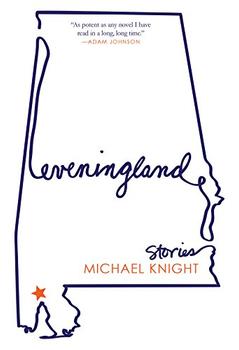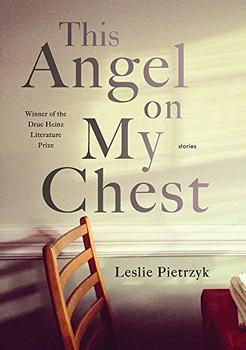Summary | Excerpt | Reviews | Beyond the book | Read-Alikes | Genres & Themes | Author Bio

Stories
by Mary MillerCombining hard-edged prose and savage Southern charm, Mary Miller showcases biting contemporary talent at its best. In The Last Days of California, she now reaches new heights with this collection of shockingly relatable, ill-fated love stories.
Acerbic and ruefully funny, Always Happy Hour weaves tales of young women--deeply flawed and intensely real - who struggle to get out of their own way. They love to drink and have sex; they make bad decisions with men who either love them too much or too little; and they haunt a Southern terrain of gas stations, public pools, and dive bars. Though each character shoulders the weight of her own baggage - whether it's a string of horrible exes, a boyfriend with an annoying child, or an inability to be genuinely happy for a best friend - they are united in their unrelenting suspicion that they deserve better.
These women seek understanding in the most unlikely places: a dilapidated foster home where love is a liability in "Big Bad Love," a trailer park littered with a string of bad decisions in "Uphill," and the unfamiliar corners of a dream home purchased with the winnings of a bitter divorce settlement in "Charts." Taking a microscope to delicate patterns of love and intimacy, Miller evokes the reticent love among the misunderstood, the gritty comfort in bad habits that can't be broken, and the beat-by-beat minutiae of fated relationships.
Like an evening of drinking, Always Happy Hour is a comforting burn, warm and intoxicating in its brutal honesty. In an unforgettable style that distinguishes her within her generation, Miller once again captures womanhood in "a raw…and heartbreaking way" (Los Angeles Review of Books) and solidifies her essential role in American fiction.
Miller’s collection is sixteen interpretations of millennial feminism, laced with drugs and depression, sex and anxiety. There’s a touch of Freud’s What does a woman want? driving each narrative, but conversely each protagonist claims control of her life in spite of her (sometimes) passivity. Miller’s writing can sparkle with insightfulness – "When you leave me, you won’t really be leaving me, I think, you’ll be leaving the girl you thought I was, who was kind of like me, but not."..continued
Full Review
 (596 words)
(596 words)
(Reviewed by Gary Presley).
 Mary Miller's Always Happy Hour is set in the south, but many will see it as something other than true southern fiction. The protagonists are too internalized, too walled off from the southerness – the land, the people, the ethos of pride, racial discord, and defeat – that is the beating heart of most great southern fiction; that is to say the forces that drive everything from regional pride to politics to art. More typical southern writers touch on some if not all of those forces, and create such a palpable sense of place that their works become universal.
Mary Miller's Always Happy Hour is set in the south, but many will see it as something other than true southern fiction. The protagonists are too internalized, too walled off from the southerness – the land, the people, the ethos of pride, racial discord, and defeat – that is the beating heart of most great southern fiction; that is to say the forces that drive everything from regional pride to politics to art. More typical southern writers touch on some if not all of those forces, and create such a palpable sense of place that their works become universal.
 Mississippian William Faulkner, a Nobel Prize winner, is one such writer. He might well have written his fiction in the blood of his ancestors. However, Faulkner was ...
Mississippian William Faulkner, a Nobel Prize winner, is one such writer. He might well have written his fiction in the blood of his ancestors. However, Faulkner was ...

If you liked Always Happy Hour, try these:

by Michael Knight
Published 2018
These stories, told with economy and precision, infused with humor and pathos, excavate brilliantly the latent desires and motivations that drive life forward.

by Leslie Pietrzyk
Published 2017
Winner of the 2015 Pitt Drue Heinz Literature Prize.